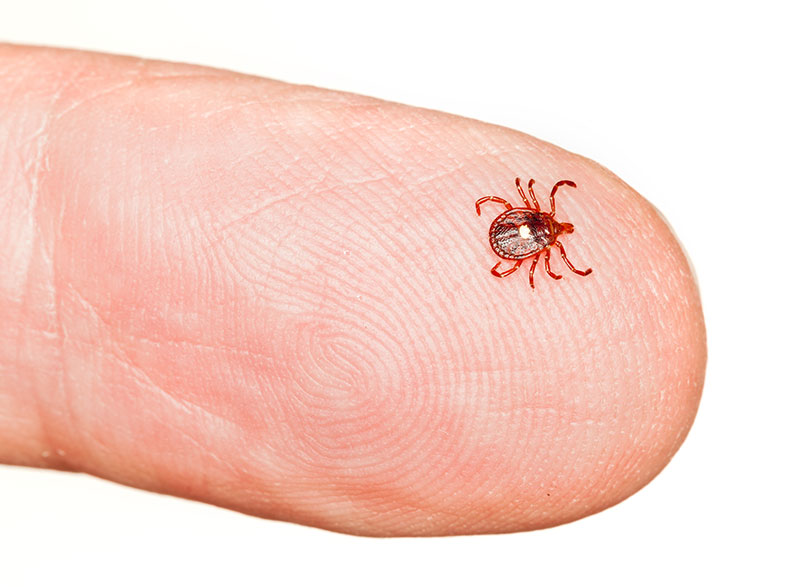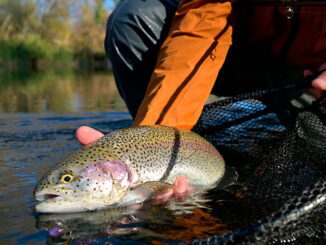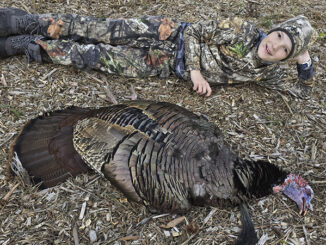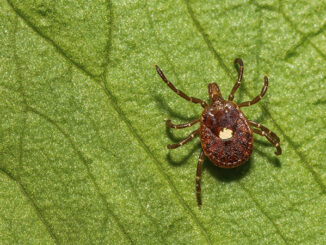
Numerous tick species live in the Carolinas
Roscoe was always a hungry dog. At feeding time, like all of our beagles, he was standing over his pan, anxiously awaiting his serving. So one afternoon several years ago when he did not come running, I knew something was wrong.
Roscoe was sitting in the corner of his kennel, head drooping, eyes dull. He did not feel good at all. I immediately did an inspection, pulling the skin up from behind his neck. It did not snap back like it would in a healthy dog. I checked his gums and they were white, another indication of anaemia.
Then I began looking more closely at his body, especially his skin, and that is when I saw them. Roscoe was covered in ticks. Without immediate treatment he could succumb to their blood-draining operation.
We quickly bathed Roscoe in a special treatment for ticks and fleas to start killing the ticks attached to his body. Then we removed as many ticks as we could, disposing them in a jar of water mixed with insecticide.
We coaxed Roscoe into eating some canned dog food to insure he had sustenance and we used a syringe to get Pedialyte down his throat to restore fluids.
It took more than a few days of constant care and continuing to remove ticks until he was completely free of the little bloodsuckers and was back on a normal eating schedule, anxiously waiting on his bowl to be filled every day at feeding time.
Meanwhile we realized Roscoe was just the tip of the iceberg. Our kennel area and eventually our yard was experiencing a tick explosion. Immediate action was necessary.
My wife and I compete in beagle field trials. We have several dogs we are working to earn championships on, plus we have the champions we have finished, females for breeding, and a few old retired beagles that have a home for life.
Time for exterminator
Our row of chain link kennels have been set up on the same site under the shade of several large oak trees in the middle of our little 12-acre homestead, along with an adjacent row of off-ground kennels. We have had issues with ticks and fleas off and on over the years, but nothing like this tick explosion a few years ago. Ticks suddenly were everywhere. You could see lines of them walking on the ground in and around the kennels. They were beginning to invade our yard and we were having to inspect ourselves for ticks every time we came in after going outdoors.

I called my exterminator and set up a program of spraying the kennels and surrounding grounds every month that spring and summer. Then, to halt any invasion of the dogs’ sleeping areas, we thoroughly cleaned their houses and sprayed them inside and out with tick and flea specific insecticide. Then we dusted each house with Sevin and provided a bed of cedar shavings.
A lifelong rabbit hunter, I had beagles off and on from the time I was 10 years old. My wife and I have raised beagles and competed in dog shows and field trials for more than 50 years. Because of all that accumulated experience, we knew the steps we needed to take to combat that tick explosion and to protect our dogs.
Most dog supply outlets carry the preventives and treatments needed to combat ticks and fleas. But, anyone with doubts should consult your veterinarian when dealing with these parasites.
In the Carolinas, people often encounter blacklegged, lone star, American dog, brown dog, Gulf Coast, and Asian longhorned ticks. Tick bites and tick-borne disease can occur year round.
The lone star tick has become a common species in the Carolinas. This tick can cause alpha-gal allergy (red meat allergy), ehrlichiosis, and Southern Tick-Associated Rash Illness.
In June 2022, the U.S. Department of Agriculture reported that Asian longhorned ticks were first identified in the United States in 2010 and have since been found in 20 states, including both Carolinas.
South Carolina public health officials have identified a large population of the invasive ticks in a pasture in York County. And in 2020 a small number were discovered on shelter dogs in Lancaster and Pickens counties.
Footnote: Roscoe did not become a field champion. He was a good beagle, but did not have the right stuff to win consistently. He eventually found a home with a rabbit hunter and lived a beagle’s good life chasing cottontails.




Be the first to comment